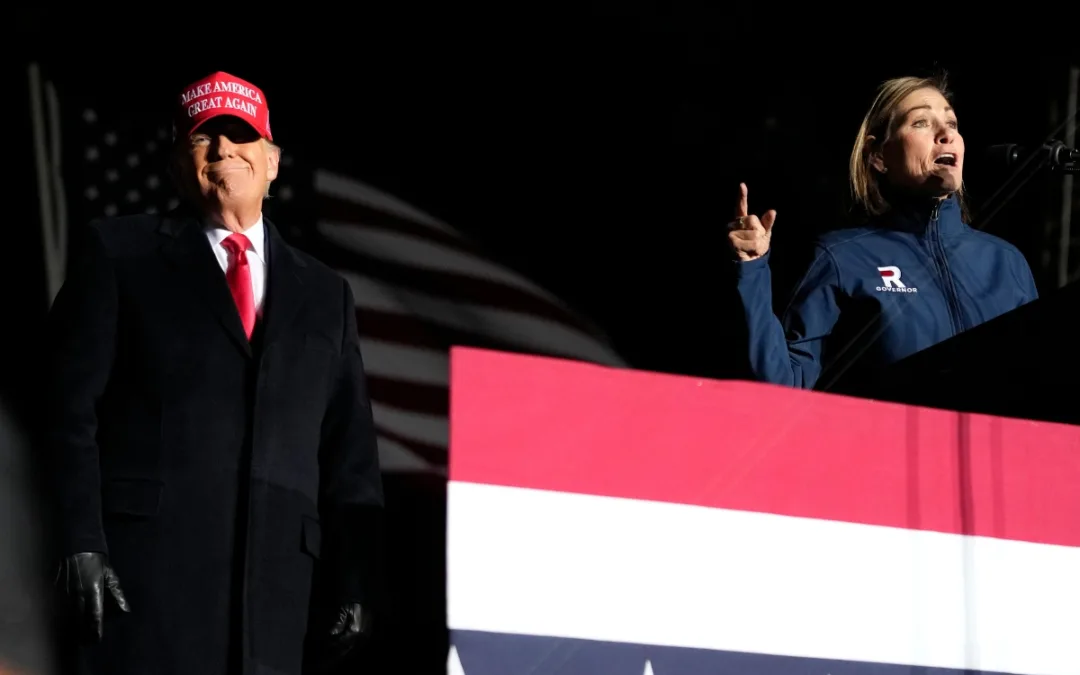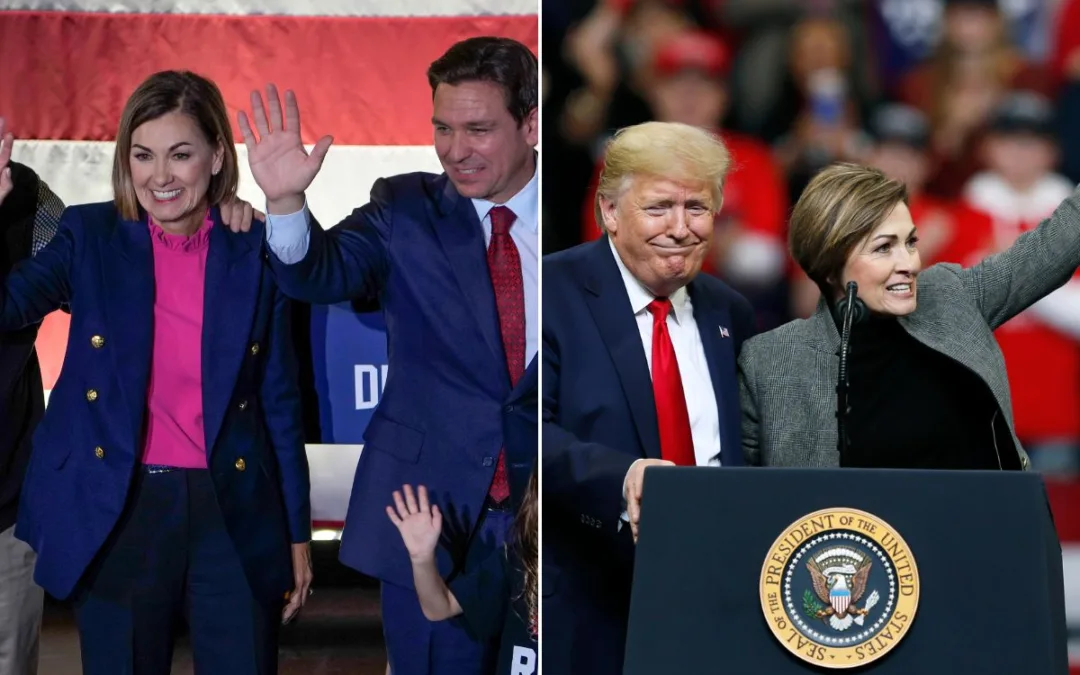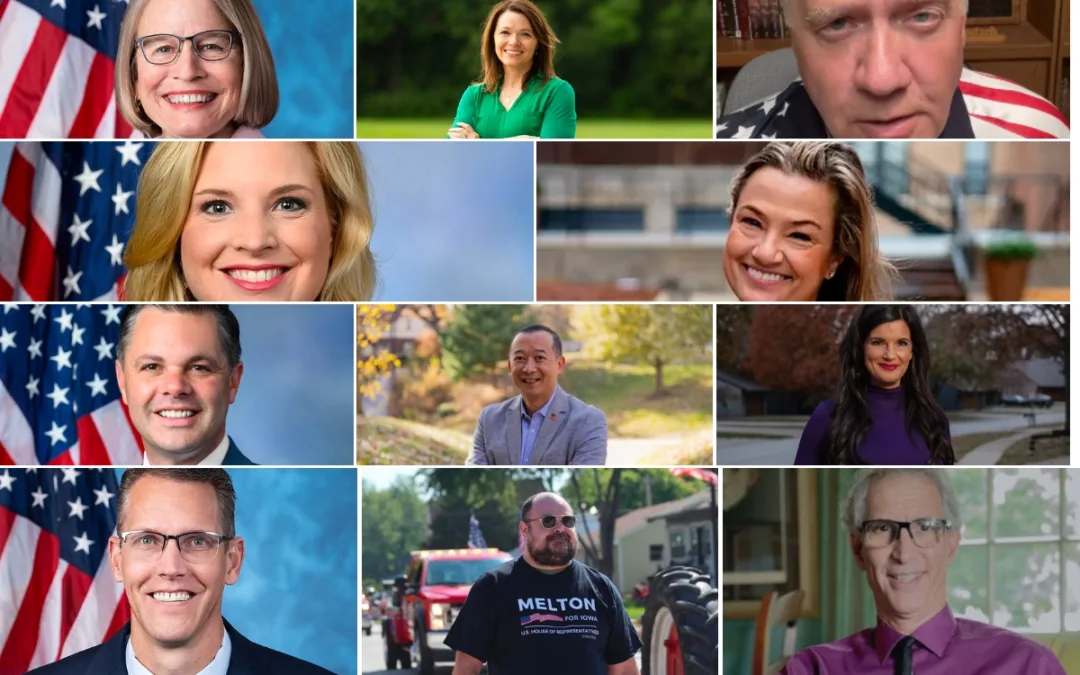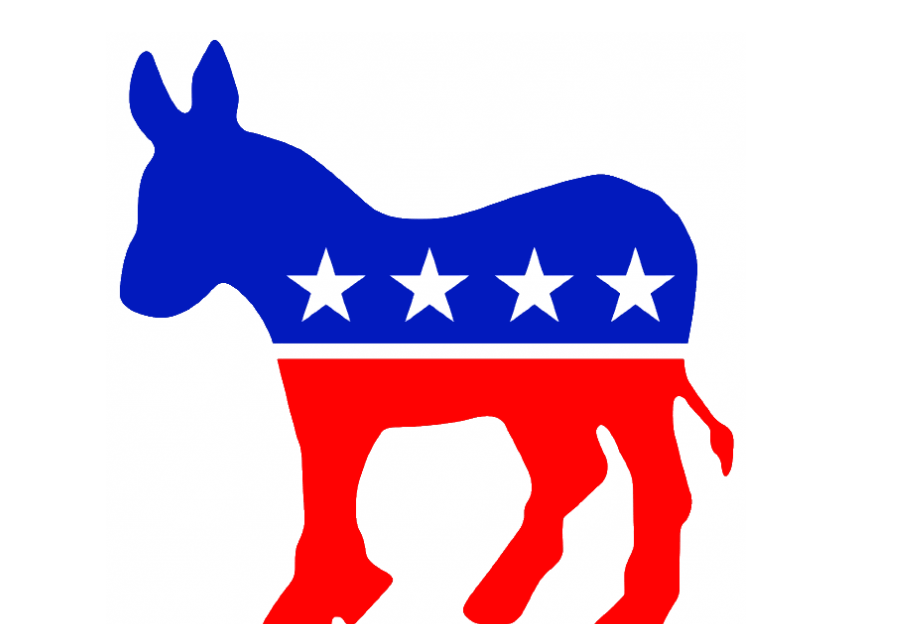
As the final rumblings over the caucus process slowly die out, Democrats have a chance to regroup and refocus on what their priorities moving forward must be. Iowa Democrats are at their weakest point in years after two consecutive midterm blowouts, but there’s plenty of opportunities in 2016 and beyond to regain the advantage. Starting off 2019 with control of the Governor’s office, Senate and House is a distinct possibility, but only if Democrats are focused and engaged in serious, long-term planning.
Having worked many cycles now in Iowa politics there’s sometime a depressing sense of deju vu every two years, where it feels like Democrats reinvent the wheel in every campaign. Past lessons go unlearned and grassroots operations are rebuilt from scratch. New staff and leaders move in with a goal of simply to win the current election, rather than laying out strategies to improve the party for cycles to come. A lot of times that’s unavoidable, as you only have time to do so much, but some people in the party need to step up and plot out the future.
The following are some potential priorities for the party as a whole, both short-term and long-term, suggested by a number of insiders that Starting Line speaks with regularly, as well as a few opinions of my own.
Short-Term Priorities
Bring Together The Party
There’s always some hard feelings after any primary, and if social media is any clue, Clinton and Sanders’ supporters are moving further apart from each other right now, not reforming ranks after the Iowa Caucus. That’ll likely continue for a while as the national primary gets more heated, but eventually both sides have to get back together and focus on the real goal at hand: electing Democrats up and down the ticket in Iowa. That’s a big task for the IDP and Andy McGuire moving forward. It would be easier if Democrats had an exciting Iowa candidate high up on the ballot for people to rally around. Right now that excitement may be a little more dispersed.
Hold The Line In The State Senate
It’s an even-numbered year, so that must mean Democrats are perilously close to losing their majority in the State Senate. Were that to happen, along with Republicans retaining the House, Iowa would become a red state. Goodbye public education funding, goodbye healthcare assistance, goodbye union organizing rights, goodbye water quality rules. Goodbye lots of things Democrats (and Iowans as a whole) care about. The presidential race this year will be exciting no matter who the nominees are, but local activists need to keep their eyes on local races and help get Chris Brase, Liz Mathis, Mary Jo Wilhelm, Rich Taylor and Brian Schoenjahn reelected. At the end of the day, Iowa’s six electoral votes are important, but Iowans’ lives will likely be impacted much more by what could happen if Terry Branstad had complete control of state government.
Pick Up Seats And Potentially Capture The State House
It wasn’t a big priority for Democrats in 2014, but the battle for the House is starting to emerge as a real potential for Democratic takeover. A host of Republican swing district retirements, along with strong candidate recruiting from the Democrats means that at the very least Democrats will be playing almost entirely offense this year. Local volunteers and donors ought to keep their eye on the shifting advantages in House races.
Retake the 1st and 3rd District House Seats
Being reduced to holding only one federal office in Iowa was an embarrassing and humbling experience for Democrats in 2014. They’ve got two great opportunities to rectify those mistakes by knocking off Rod Blum and David Young, Blum the more vulnerable of the two. Democrats face competitive three-way primaries in both (which so far haven’t been too nasty), out of which good candidates should emerge. Winning the 1st District could keep it in Democratic hands for years; taking the 3rd after Young’s first term would deny him the possibility of becoming an easily-reelected Congressman for a decade or more.
Pressure Chuck Grassley On Court Nomination
Iowa’s senior senator enters another reelection year as a heavy favorite to win. But with the country now facing a big Supreme Court nomination battle, Grassley will find himself in the middle of a contentious, partisan process where he’ll have to explain to Iowans why he’s obstructing the workings of Congress on a pivotal part of their job for a year. Democrats can chip away at Grassley’s standing in Iowa and give likely Democratic nominee Rob Hogg an opening.
Long-Term Priorities
Build The Bench With Younger Democrats
This needs to be priority number one, two and three going forward. Democrats have dangerously few younger elected officials waiting in the wings to run for higher office. Meanwhile, the Republicans could field a baseball team with the amount of 30- and 40-something up-and-comers in the Legislature. Part of the issue is a matter of ambition. There’s been opportunities this year and in recent ones that folks have passed on. The other part is one of organization and support. I count no less than five different groups of Democratic leaders and activists in Iowa who want to work on this project – it’s time they start working together. And most younger Democrats don’t have the donor connections they need to mount strong campaigns. There’s going to be a couple competitive primaries for Democratic-leaning seats around the state this cycle and next. Party donors would be wise to consider not just what’s good for their old friends, but what’s good for the future of the party.
Win The 2018 Gubernatorial Race At All Cost
Outside control of the Legislature this cycle, nothing is more important than the upcoming massive battle for the Governor’s office in 2018. There will likely be a large primary on both the Democratic and Republican sides. Hopefully Democrats field a number of strong candidates for the race and hold a useful primary that excites voters and prepares the nominee. In the meantime, Democrats should look into every way they can to damage the potential 2018 Republican candidates.
Develop Fundraising Networks Outside Des Moines
Look through the lists of the top individual big donors for the party (outside the unions), and the vast majority of the donors who write the $5,000 and $10,000 checks come from the Des Moines/central Iowa area. Certainly there’s some well-paid tech managers at Rockwell Collins in Cedar Rapids, tenured education professionals at the University of Iowa, manufacturing executives in Davenport or a few liberal-leaning agribusiness leaders around the state that could be recruited to help fund the party in a big way.
Part of this comes from the larger problem of how it sometimes feels like there’s Des Moines politics and Eastern Iowa politics. The IDP made a good step last year in hiring field staffers for each Congressional district, as did the Senate Majority Fund in placing a staffer early on in Eastern Iowa. Long-term presences like that can help activists and donors outside Des Moines feel like they have a bigger stake in the party’s basic functions.
More Geographic Diversity In Our Top-Of-Ticket
Des Moines. Cedar Rapids. Des Moines. Cedar Rapids. That’s often a trend in where Democrats’ top-of-ticket candidates come from in general elections (with a few other big cities thrown in from time to time). There’s nothing wrong in having attorneys and business executives from a major Iowa metro area high up on the ballot, it would just be nice to get a little diversity that makes voters from other parts of the state feel included. Democratic insiders often toss out names like Todd Prichard from Charles City, Chris Hall from Sioux City, Scott Ourth from Warren County, Patti Ruff from McGregor, Chaz Allen from Newton or Abby Finkenauer from Dubuque. Those are the better-known legislators, however. There’s probably some good business leaders and mayors from more diverse areas as well.
Winning More County Level Offices
In addition to younger elected officials, Democrats just need a deeper bench in general at the county and city level. 65% of those offices in the 3rd District alone are held by Republicans. Most of those races just sort of happen on their own, with little direction or forethought from the larger party. A little bit of investment to local candidates could go a long way to strengthening the party on both a governing and political aspect.
Another big advantage to more Democratic incumbents at the local level means it provides that many more campaigns and organic volunteer networks to help out the rest of the ticket. It’s pretty hard to recruit for a sizable door-to-door canvass in a smaller town of 10,000. But if you had an incumbent Democratic County Auditor, County Treasurer, Sheriff and Supervisor bringing five to ten of their family members and friends each, you’ve got a real turnout operation for Democrats in a rural county.
Reverse The Republican Trend In Scott County
Scott County should not be a swing county. But too often it is. Democrats outnumber registered Republicans there by about 4,000 voters, a much smaller margin than Polk or Linn, but still an advantage. More notably, Barack Obama easily won Scott with 57% in 2008 and 56% in 2012. But outside those presidential years with high African American turnout in Davenport, the results have increasingly favored Republicans. Joni Ernst won it in 2014, one of her only big county wins outside of Western Iowa. The local Republican Party there has proven particularly strong in recent years while the Democratic counterpart struggled. Republican voters achieved a turnout of 66% in 2010 and 2014, only three points under the Republicans’ statewide average. Democratic voters came out at a 48% turnout in those two cycles, a full eight points under the Democrats’ statewide average. For Democrats to win statewide, the party infrastructure there must be improved from a mix of local creativity and long-term statewide investment.
by Pat Rynard
Posted 2/15/16
Politics
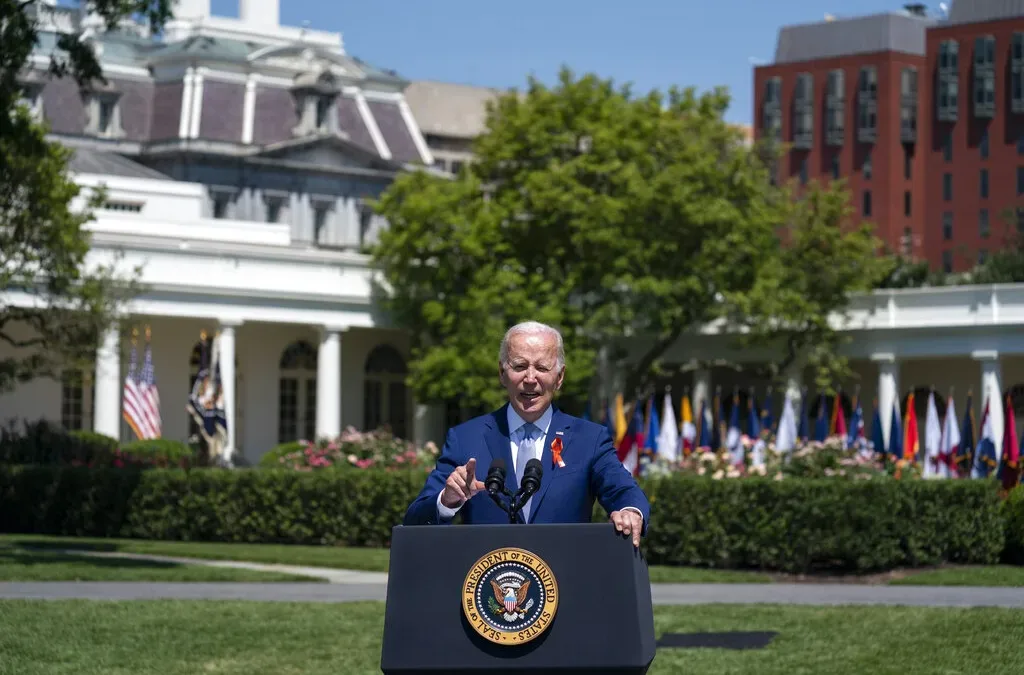
Biden announces new action to address gun sale loopholes
The Biden administration on Thursday announced new action to crack down on the sale of firearms without background checks and prevent the illegal...
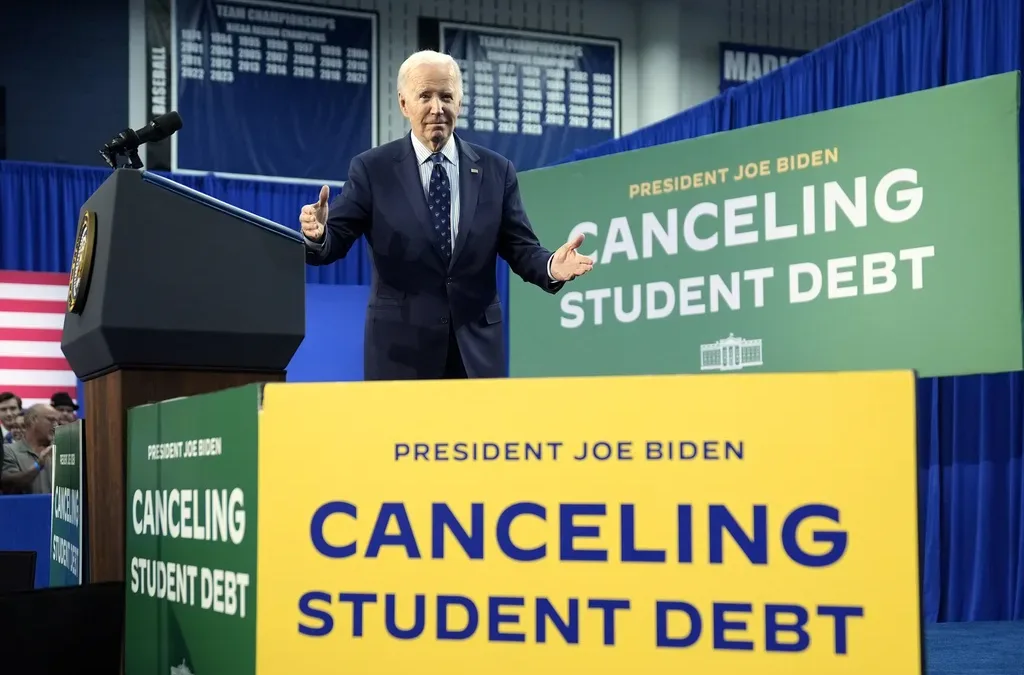
Biden cancels student loan debt for 2,690 more Iowans
The Biden administration on Friday announced its cancellation of an additional $7.4 billion in student debt for 277,000 borrowers, including 2,690...
Local News

No more Kum & Go? New owner Maverik of Utah retiring famous brand
Will Kum & Go have come and gone by next year? One new report claims that's the plan by the store's new owners. The Iowa-based convenience store...

Here’s a recap of the biggest headlines Iowa celebs made In 2023
For these famous Iowans, 2023 was a year of controversy, career highlights, and full-circle moments. Here’s how 2023 went for the following Iowans:...



